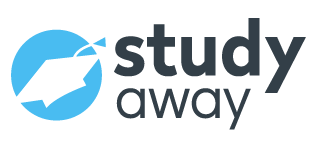
Are you thinking about studying Down Under? You're not alone! Australia has become a popular destination for international students, including many from Papua New Guinea (PNG). This blog will explore why Australia is so attractive and provide some essential information for PNG students considering this exciting opportunity.
Why Australia? The Excitement for International Students
Australia's popularity as a study destination stems from a combination of factors:
- World-Class Education: Australian universities rank highly worldwide, giving PNG students quality education and research. For rankings and course details, visit the QILT (Quality Indicators Learning Teaching) website.
- Post-Study Work Opportunities: Australia offers post-study work visas for eligible graduates, helping international students, including those from PNG, gain work experience.
- Multicultural Society: Australia is a multicultural nation that welcomes people globally and supports international students. Cities like Brisbane and Cairns host PNG communities for added assistance.
- Lifestyle and Environment: Australia boasts stunning beaches, unique wildlife, and a mix of bustling cities and laid-back towns, creating a diverse lifestyle and beautiful environment that enhances the experience for international students.
- Proximity to PNG: Australia is closer to PNG than many other study destinations, making travel home more manageable and affordable.
Is it Easy for Papua New Guineans to Get an Australian Student Visa?
While visa approval is not guaranteed, Papua New Guinea students who meet all the requirements and submit genuine and complete applications have a good chance of obtaining a student visa. Thorough preparation and attention to detail are key.
Key Requirements for Papua New Guineans to Study in Australia
1. Student Visa (Subvlass 500)
- Visa Application: To study in Australia, you must apply for a Student Visa (Subclass 500). This visa allows you to stay in Australia for your course, provided you meet all requirements.
- Basic Eligibility:
- Confirmation of Enrollment (CoE): You must first apply and be accepted into an eligible course at an Australian educational institution. Once accepted, you will receive a Confirmation of Enrollment (CoE), which is required for the visa application.
- English Language Proficiency: You must demonstrate proficiency in English by submitting one of the following test scores (or an equivalent):
- IELTS (International English Language Testing System): Typically, a score of 5.5 to 6.5, depending on the course.
- TOEFL iBT (Test of English as a Foreign Language): A score between 46 and 79 is usually required.
- PTE Academic (Pearson Test of English): A score of around 50–58.
- Other recognized tests may be accepted, depending on the institution.
- Financial Capacity: You must prove you have enough funds to support yourself while studying in Australia. This can include showing sufficient bank balances, a financial guarantee from a sponsor, or other proof of financial support. Typically, the required amount is:
- $53,879 PGK for living expenses for a year
- Plus, travel and tuition fees, which are about $17,500 - $35,000 PGK
- Health Insurance: You must have Overseas Student Health Cover (OSHC) to be eligible for the visa. OSHC covers the cost of medical treatment in Australia. Major OSHC providers in Australia:
- Genuine Temporary Entrant (GTE) Requirement: You must satisfy the Australian government that you genuinely intend to study in Australia temporarily and will leave after completing your studies.
- Character and Health Checks: To ensure you meet the health and character requirements, you must undergo a medical exam and provide a police clearance certificate.
2. Documents Needed for a Student Visa (Subclass 500):
- Valid passport
- Birth Certificate and National Identification Documents
- CoE (Confirmation of Enrollment) from an Australian educational institution
- Proof of English language proficiency
- Proof of sufficient funds (bank statements, affidavits, etc.)
- Statement of Purpose (Genuine Student Requirement)
- OSHC health insurance coverage
- Visa application fee (around PGK $4,160+)
- Police clearance and health check (if required)
How Student Visas of Australia Assessed
Student Visas are approved based on several criteria, such as whether the prospective student is able to prove that they:
- Can financially support themselves and maintain their studies in Australia - by proving they have access to adequate funds before leaving their home country.
- They fulfil the Genuine Student Requirements, which broadly state that they are entering Australia for the sole purpose of Studying and not otherwise (i.e. working primarily or for marriage or other illegal activities)
Post-Graduation Pathways to Further Stay in Australia
After completing a course in Australia, international students can apply for post-study or graduate visas to stay and work in Australia. Sometimes, these can lead to pathways to permanent residency (PR).
Not all courses are eligible for further Study Visas. The job outcomes from the chosen courses must align with the Skilled Occupation Shortage List. These are the jobs that Australia considers in demand or a shortfall, and it is willing to bring in employees from other countries.
Popular courses Papua New Guinean Students are studying in Australia
Papua New Guineans are naturally caring people and love to be of service; there is no wonder why healthcare, community care and education courses are the most popular courses for Papua New Guineans to study in Australia
- Healthcare - Aged Care and Nursing
- Education - Early Childhood Education and Care
- Building and Construction - Carpentry, Cabinet Making
- Automotive - Light vehicle and Electrical
- Commercial Cookery - Chef skills
Post-Study Visas Explained
1. Temporary Graduate Visa (Subclass 500)
The Temporary Graduate Visa (subclass 485) is a popular visa for international students who have completed their studies in Australia. There are two streams within this visa:
- Graduate Work Stream:
This visa permits an 18-month stay for work experience for international students with qualifications related to Australia's Skilled Occupation List (SOL).
- Post-Study Work Stream:
This is for international students who completed higher education in Australia. It allows a 2–4 year stay based on qualification level (e.g., 2 years for a bachelor’s, 4 years for a PhD).
Eligibility for Subclass 485:
- You must apply within 6 months of completing your studies.
- You must have held a valid student visa during your studies.
- Your qualification must be on the eligible list of occupations for the Graduate Work Stream or a recognized Australian qualification for the Post-Study Work Stream.
General Tips for PR Pathways
- Skills Assessment: Depending on your occupation and assessing authority, many PR pathways require verifying that your qualifications and work experience meet Australian standards.
- State Sponsorship: Some Australian states and territories nominate skilled workers for PR. Check the requirements for your chosen state.
- Your occupation must be listed on the Skilled Occupation List.
- Employer Nomination Scheme (ENS) visa (subclass 186)
- Regional Sponsored Migration Scheme (RSMS) visa (subclass 187) - Temporary Residence Transition Stream
- Skilled Independent visa (subclass 189) – Points-tested stream
- Skilled Nominated visa (subclass 190)
- Training visa (subclass 407)
- Skills in Demand visa (subclass 482) – Core Skills Stream
- Temporary Graduate visa (subclass 485) – Post-Vocational Education Workstream
- Skilled Regional (Provisional) visa (subclass 489)
- Skilled Work Regional (Provisional) visa (subclass 491)
- Skilled Employer Sponsored Regional (provisional) visa (subclass 494)
Managing Finances As a Papua New Guinean Student in Australia
Work Limitations (48 Hours/14 Days)
- Rents and Cost of Living: Living expenses in Australia can vary depending on the city and lifestyle. Research accommodation options and costs before you arrive. (Websites like Numbeo can give you an idea of the cost of living: https://www.numbeo.com/cost-of-living/)
- Financial Strategies:
- Budgeting: Create a budget to track your expenses and ensure you have enough funds.
- Part-time Work: Utilize your work rights to earn extra income.
- Scholarships: Explore scholarship opportunities to help fund your studies.
- Student Discounts: Take advantage of student discounts on various services and products
Studying in Australia from Papua New Guinea is an achievable dream with proper planning. Following this guide and staying updated on regulations can start a rewarding educational journey. Always check official government websites for the latest information.
The hourly rate is considered high. However, Australia is heavily taxed, and the cost of living matches the high minimum wage. Here is an outline of typical costs:
Rent & Cost of Living
- Rent in cities like Sydney or Melbourne can be high, ranging from PGK $500–1,200/week for shared accommodation.
- Whole unit apartment or home rentals can cost PGK $1,400 - $3,100 per week
- Many students opt for shared housing or student dorms to reduce costs
- Tuition fees: Typically PGK $25,651–$115,432/year, depending on the course.
- Tuition Monthly Repayments can be:
- ELICOS and VET Courses = PGK $2,300 - $4,600 per Month
- Bachelors Courses = PGK $4,600 to $7,600 per month
- Post Graduate (Masters, PhD) = PGK $5,100 + per month
Based on these broad estimations, students cannot survive with Part-time work alone in Australia.
Financial Strategies
- Savings: Many students save before arriving and use part-time work earnings to manage day-to-day costs.
- Scholarships: Check with universities for potential scholarships.
- Family Support: Students use and pool family funds and assets to fund their studies in Australia or take out a loan in their home country
Why Partner with Studyaway?
Studyaway is an Australian agency that offers various services to help international students achieve their academic goals by studying abroad.
- Course Counseling: We can help you select the right course and institution based on your interests and career goals.
- Visa Assistance: Our expert team helps with your student visa application, ensuring a smooth process.
- Accommodation Help: We guide you in finding the right accommodation, whether student housing or homestays.
- On-Arrival Support: Our team in Australia provides support to help you settle in and adjust to your new environment.
- All-in-One Service: We simplify the entire study abroad process with a complete support package.
- Ongoing support - Studyaway provides students with onshore support in Australia to help them make it to their next post-study visa if their goal is to remain in Australia. This means that you will only need to work with one Education and Migration Agency for your entire stay. We will keep you updated and informed of any changes that can occur during your studies.
Ready to Make Your Aussie Dream a Reality? Contact Studyaway today, and let's get started!
Here are some readings for you:




